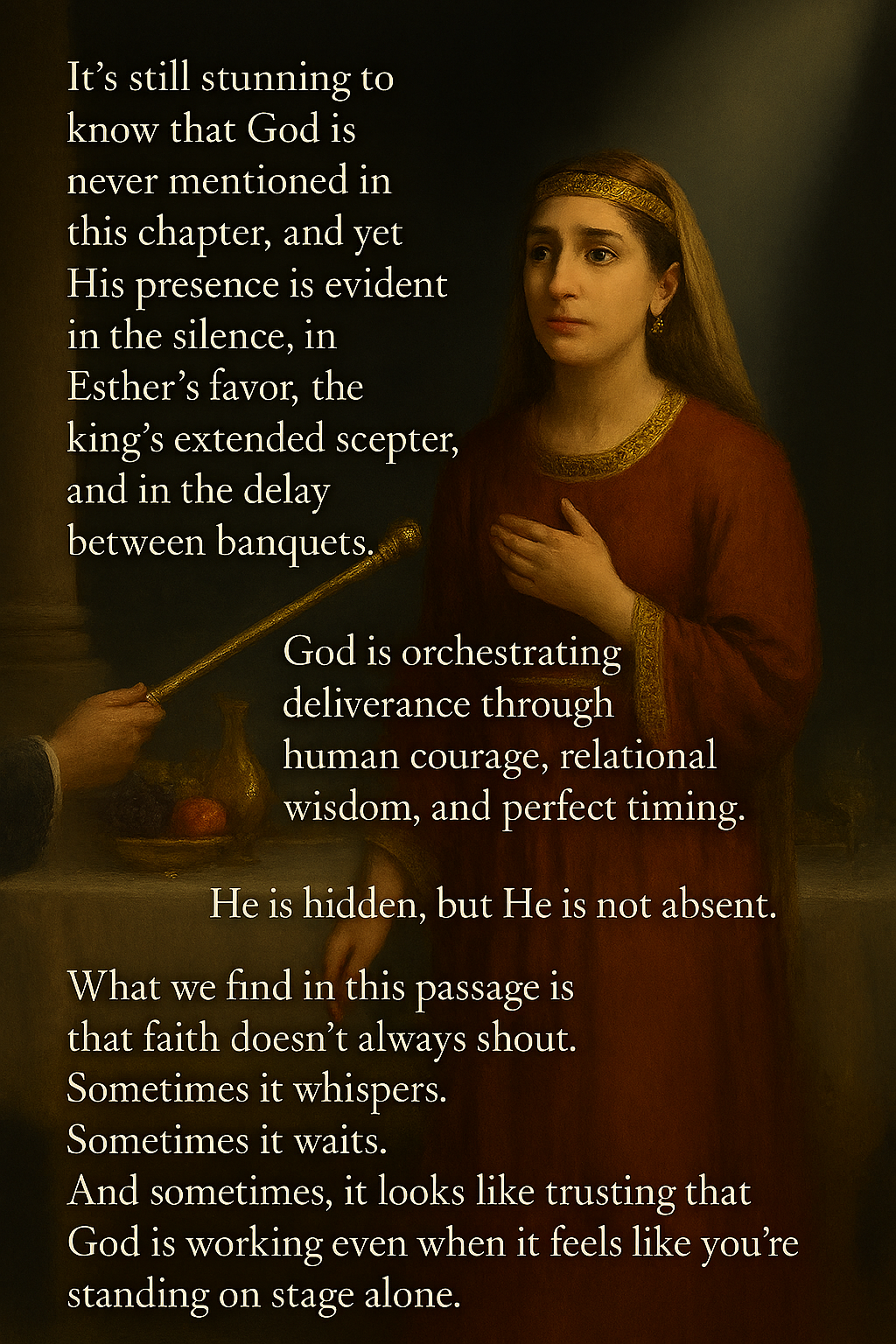Courage in Silence and Speech
GOD’S WORD
ESTHER 5:1-2; HEBREWS 4:16
DEVOTIONAL BY
CAPTAIN KELSEY BRIDGES
Director of Curricullum - EBC
 Serving in my current role at the Evangeline Booth College, our staff officers have the unique experience of coaching future preachers, standing at the pulpit delivering their first sermons as cadets before they are appointed to a flock of their own across the territory. I’ve seen the nerves, their shaky hands gripping the podium, the dry mouth trying to get through the opening sentence, the pages of notes that shake in the cadet’s hands like a leaf caught in a restless breeze. I’ve seen the deep breaths, the silent prayers, the “Lord, please don’t let me pass out” expressions on their faces. They are sacred moments, and terrifying ones, too.
Serving in my current role at the Evangeline Booth College, our staff officers have the unique experience of coaching future preachers, standing at the pulpit delivering their first sermons as cadets before they are appointed to a flock of their own across the territory. I’ve seen the nerves, their shaky hands gripping the podium, the dry mouth trying to get through the opening sentence, the pages of notes that shake in the cadet’s hands like a leaf caught in a restless breeze. I’ve seen the deep breaths, the silent prayers, the “Lord, please don’t let me pass out” expressions on their faces. They are sacred moments, and terrifying ones, too.
Stepping up to preach isn’t just about getting your theology right, it’s about putting yourself out there. It’s about trusting that God is going to show up, even when your confidence doesn’t. And as I picture the cadets standing in that moment, I think of Esther. In chapter 5, Esther isn’t preaching a sermon, but she is standing before power as we see the passage read in verses 1 – 2, “On the third day Esther put on her royal robes and stood in the inner court of the palace, in front of the king’s hall. The king was sitting on his royal throne in the hall, facing the entrance. 2 When he saw Queen Esther standing in the court, he was pleased with her and held out to her the gold scepter that was in his hand. So Esther approached and touched the tip of the scepter”.
We can picture Esther in the palace. Death is on the horizon for her people. She’s not a warrior, not a prophet, not even someone with full freedom. She’s a queen with limited power and a heavy burden. But something holy happens in this passage. She puts on her royal robes, an outward sign of her inward calling, and walks toward the throne room. One wrong move, and the king could signal for her execution. Yet she walks into the king’s court knowing the risk.

Faith is not the absence of fear, but the decision to move forward anyway. When the king welcomes her, she doesn’t rush into demands. Instead, she invites him to a banquet. And then she invites him to another. Why? Because Esther wasn’t just brave, she was strategic. She understood that timing is as important as truth. She read the room. She used wisdom. She knew that influence grows in relationship. Esther teaches us that boldness and wisdom are not opposites, but they are partners in kingdom leadership.

|
||||
|
